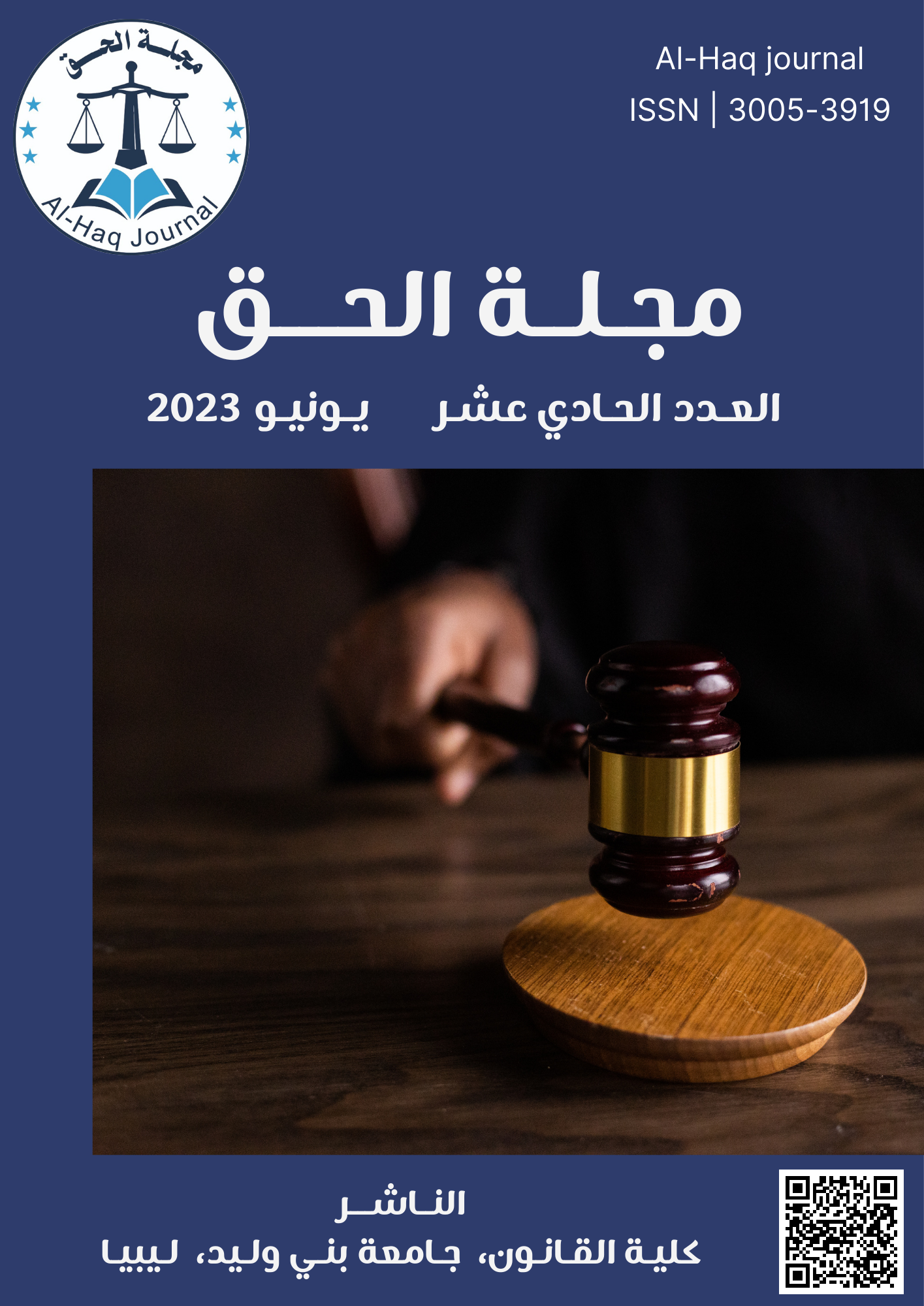Evidence in administrative law
DOI:
https://doi.org/10.58916/alhaq.v10i1.13Keywords:
Administrative law - administrative judge - burden of proof - means of proof.Abstract
It is well known that the administrative judiciary has an arduous task to be responsible for legitimacy and validity, the establishment of administrative justice, the protection of citizens' rights within the rule of law, and that the role of the administrative judge must be positive in the administrative dispute. His/Her task is based on his/her investigation of the cases and evidence and the independence of each evidence that leads him/her to the truth.
One of the most important means of establishing this right is to seek strong proof, which may be an unsustainable constant of the author's inability to find the means to prove, so it is said that the proof revives the right and makes it useful.
The provisions governed by the Rules of Evidence are precise legal issues in all modern legislation, as well as the considerable importance of civil and commercial articles, and its greater importance is shown in the Criminal Code. This is different from the theory of proof in administrative law, which is drafted on the basis of the judicial nature of administrative law.
the importance of this issue is reflected in the extent of the conflict between members of society and the Department's access to its public interest, and in the achievement of justice by ensuring that every right has access to his/her rights in accordance with the law through various means of proof. The methods of proof are therefore very necessary means for the judge to verify the legal and practical facts on which the litigants depend on, and the corresponding rights.
This subject also raises a number of questions. What are the reliable means of establishing rights in administrative disputes? What evidence has been adopted to prove before the administrative judge? What is the authenticity of these means? What is the point of view from the Libyan law prospective?
In view of the fact that administrative law is a statutory and non-codified establishment law, has the administrative court used the rules of evidence contained in the Civil Code?
What are these methods of proof and determining the burden of proof? What is the judge's role in proof? How are the methods of proof direct and indirect? What is the strongest evidence on which an administrative judge can rely in the disputes before him/her? The development of this evidence can be updated to facilitate the entry, establishment, and operation of indirect and digital evidentiary evidence before the administrative court.
Demonstration of the ideas associated with this topic, in which the analytical descriptive approach compared to some of the particulars means research through the texts and articles of the Libyan Civil Code.
Downloads
Downloads
Published
Issue
Section
License

This work is licensed under a Creative Commons Attribution-NonCommercial 4.0 International License.









